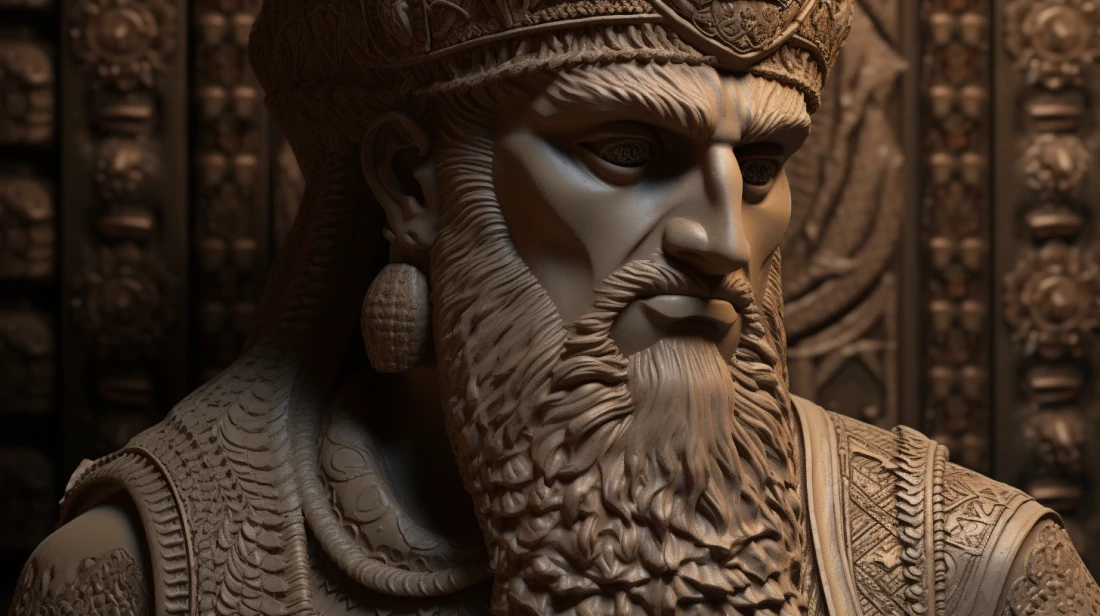
Despite technological progress, humans are still obsessed with escaping death. But what if the answer was discovered thousands of years ago? One of the oldest books ever found, dating back to 2100–1200 BC, The Epic of Gilgamesh tells the story of a man in search of immortality. It proves that people have been looking for ways to escape death for millennia. But has anything changed? Let’s explore the legendary epic and its relevance in today’s world.
The Epic of Gilgamesh
The main character of the epic, Gilgamesh, is the king of Uruk, who is two-thirds god and one-third human. The story begins with the people of Uruk complaining about Gilgamesh’s oppressive rule. In response, the gods create a wild man named Enkidu to challenge him.
After an intense battle, the two become close friends and embark on daring adventures. They journey to the Cedar Forest to slay the monstrous Humbaba and defeat the Bull of Heaven, which the goddess Ishtar sends to punish Gilgamesh for rejecting her advances.
However, their friendship takes a tragic turn when Enkidu falls ill and dies. Devastated, Gilgamesh becomes obsessed with finding the secret to eternal life. He embarks on a perilous journey to the ends of the earth to meet Utnapishtim, who was granted immortality by the gods after surviving a great flood. Despite facing numerous challenges, Gilgamesh ultimately learns that immortality is beyond human reach.
Utnapishtim tells him the story of the great flood and challenges him to stay awake for six days and seven nights. Gilgamesh fails and later loses a plant that could restore his youth to a serpent while bathing. In the end, he returns to Uruk with newfound wisdom, accepting mortality and focusing on his legacy.
The epic concludes with a reflection on Gilgamesh’s lasting impact:
See how he has made an enduring name for himself,
Even the gods will bow down before him,
And so it will be for all time to come.These lines suggest that while Gilgamesh could not achieve immortality, his deeds and legacy would live on forever.
The Quest for Immortality Today
Gilgamesh is just one of many figures throughout history who sought immortality and failed. Today, the fear of death remains just as prevalent, but the methods have evolved.
Medicine and Science
Modern advancements in medicine allow people to live longer, healthier lives. Scientists continue to search for treatments to combat aging and extend lifespan. While significant progress has been made, the human body remains finite, eventually succumbing to natural causes.
Technology and Transhumanism
Technology offers new possibilities, such as uploading human consciousness to computers or enhancing the human body with artificial components. But these efforts raise ethical and existential questions: would a digital existence still be considered life? Can consciousness exist without the physical body?
Despite humanity’s efforts, the pursuit of physical immortality remains elusive. However, these endeavors raise an important question—does death of the body truly mean the end?
Is Immortality Really What We Seek?
While the body is mortal, many belief systems suggest that the soul is eternal. Major religions teach that divine energy within us transcends physical existence, suggesting that death might actually be a form of liberation rather than an end.
Instead of focusing solely on avoiding death, perhaps the key to immortality lies in living a meaningful life and leaving a lasting legacy, much like Gilgamesh.
How to Find Your Own Immortality
Achieving a sense of immortality in the modern world doesn’t necessarily mean defying death. Here are some ways to ensure your legacy endures:
- Create meaningful relationships: Strong connections with others ensure your influence lives on.
- Contribute to society: Work that positively impacts communities can leave a lasting mark.
- Preserve your thoughts and ideas: Writing, art, and digital content can keep your voice alive for generations.
- Live with purpose: Focusing on meaningful goals can provide a sense of fulfillment beyond mere existence.
Conclusion
The quest for immortality, as seen in The Epic of Gilgamesh, is timeless. While modern advancements provide new opportunities to extend life, true immortality may lie in how we live and the impact we leave behind. Accepting our mortality and striving to create a meaningful legacy might be the closest we can get to eternal life.
Whether through love, contribution, or personal growth, perhaps we already hold the key to a different kind of immortality.